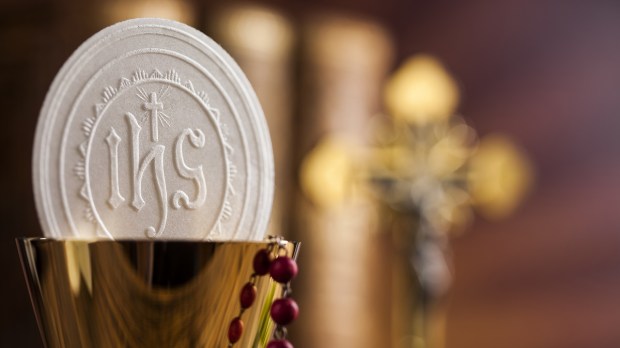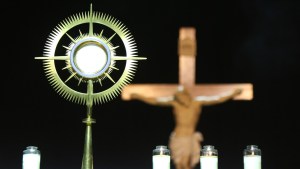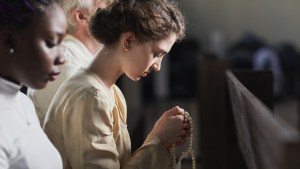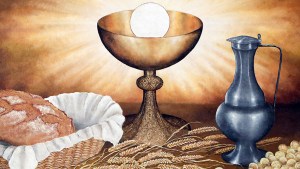Lenten Campaign 2025
This content is free of charge, as are all our articles.
Support us with a donation that is tax-deductible and enable us to continue to reach millions of readers.
A new survey from the Center for Applied Research in the Apostolate (CARA) is measuring the faith practice and belief in the Real Presence of Jesus Christ in the Eucharist of US Catholics. The data was collected between July and August 2022 and includes survey results from 1,031 individuals in a mix of online responses and live interviews. The results found that a majority of Catholics do believe in the Real Presence, but many are still unaware of Church teaching.
Mass attendance
Mass attendance was the first topic of the study, and it was found that only 17% of responding Catholics still go to Mass at least once per week, down from 24% prior to the pandemic. The portion of those who said they attend Mass at least once per month was 18% and 26% said they only go a few times a year (like Christmas or Easter). Those who said they rarely or never attend Mass accounted for a plurality at 35%.
Sacraments
On the topic of the sacraments, nearly all (93%) Catholics reported receiving their First Communion, with only slightly fewer (86%) being confirmed. When asked which sacrament was most important, Baptism was at the top of the list, with 71% saying it was “very” meaningful. This was followed by marriage (69%) and the Eucharist/Holy Communion (66%). Less than half (49%) reported always receiving Communion at Mass, while 33% said they “seldom” or “never” receive Communion.
Real Presence
Next, respondents were asked to explain in their own words what happens during the Consecration of the gifts of bread and wine. Here, only 35% responded in a way consistent with Church teaching on the Real Presence, while 8% said they do not believe any change occurs. Furthermore, 18% did not seem to understand the question, elaborating instead on the procedural aspects of Communion, and nearly two in five could not or refused to answer.
The survey found that there is significant confusion about the Church’s teaching on the Real Presence, with 49% responding that they believe the Church teaches that “Jesus Christ is truly present under the appearance of bread and wine.” Meanwhile, the slight majority (51%) thinks that the Church teaches that “the bread and wine are symbols of Jesus.” The results show that slightly more Catholic adults do not correctly know the teaching of the Church. Those who attended Mass weekly were far more likely (9/10) to cite the correct Church teaching.
Respondents were then asked to clarify their views on the Real Presence, where it was revealed that 44% of adult Catholics say they believe “Jesus Christ is truly present under the appearance of bread and wine.” Slightly more (48%) said they believe the bread and wine are just symbols of Jesus, while 9% selected “neither of the above.”
By combining all their questions about the Real Presence, CARA was able to more accurately measure responses to questions of Church teaching and personal beliefs. It was found that only 38% of adult Catholics correctly know the teachings of the Church, while 48% of them do not. In this, CARA determined that most who do not believe in the Real Presence do not reject Church teaching, but rather they are unaware of Church teaching.
Still, the survey asked respondents to clarify their beliefs on the Real Presence one last time, at which point 57% responded that they believe in the Real Presence of Jesus Christ in the Eucharist. When all the questions about the Real Presence were accumulated, it was determined that about 64% of Catholic adults believe in the Real Presence.
Those most likely to believe in the Real Presence were adult converts to the faith and those who attended Catholic school for any amount of time. Almost all (95%) of those who attend church weekly said they believe in the Real Presence, while only slightly fewer (80%) of those who attend church monthly said the same.
Catholic education
CARA also inquired about how respondents were educated in the faith, where a majority (53%) said they learned from their parents followed by sacramental preparation or religious education in a parish (44%), at Mass (41%), or at Catholic school (37%).
Those who said they learned about the Real Presence in church or from the Bible were most likely to believe in the Real Presence, at 76% and 78% respectively. Some 67% of those who were catechized by their parents said they believe in the Real Presence.





